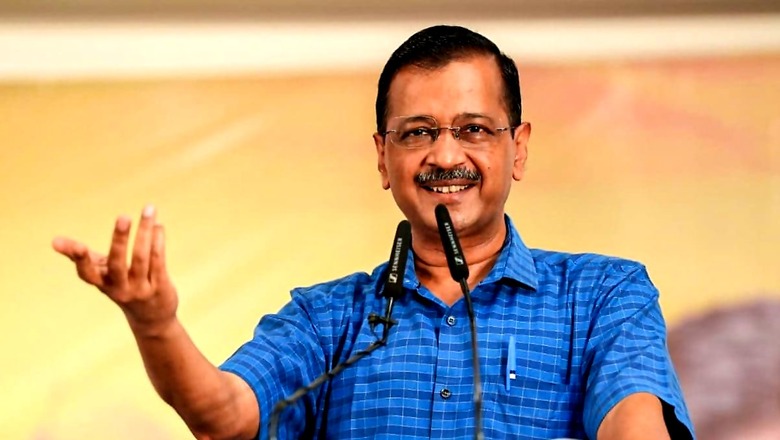
views
While ‘bail is the rule and jail an exception’ has been a sacrosanct principle in criminal jurisprudence in the country, the scenario has been opposite for cases related to the Prevention of Money Laundering Act (PMLA), 2002. However, the recent orders granting bail to former Delhi Deputy Chief Minister Manish Sisodia, Bharat Rashtra Samithi (BRS) leader K Kavitha and Hemant Soren’s close aide Prem Prakash have raised hopes even for Delhi Chief Minister Arvind Kejriwal.
Referring to the order in case of Sisodia, the top court on Wednesday held, “Liberty of the individual is always the rule and deprivation, by procedure established by law, the exception. Twin test does not take away this principle."
The said recent orders, passed by a two-judge bench of the Supreme Court presided over by Justices BR Gawai and KV Viswanathan, could actually lead to a surge in the number of accused being released on bail, easing the burden on overcrowded jails of the country.
WELCOME CHANGE, SAY LAWYERS
“This is a welcome change and shows the changing attitudes of the Hon’ble Apex Court towards agencies like the Enforcement Directorate/Central Bureau of Investigation (CBI). However, will this trend continue is a question everyone is trying to answer and await the outcome of the bail filed by Arvind Kejriwal before the Apex Court," said Supreme Court lawyer Anmol Kheta.
“In fact, going through K Kavitha’s bail order, Supreme Court’s indignation with the Delhi High Court becomes apparent where the HC refused bail on the ground that she is a woman of high status and therefore, not entitled to the exception carved out in the proviso to Section 45," he added.
Moreover, these decisions could also have a deterrent effect on investigative agencies, forcing them to strengthen their cases before seeking remand. “All these judgments are not only opening the floodgates for bail in PMLA, rather they are reiterating that personal liberty is of paramount consideration. In all the recent judgments passed by the Supreme Court, the ED has miserably failed to place the material before SC justifying the incarceration of the undertrials for an indefinite period," said senior advocate Pramod Kr Dubey.
K Kavitha’s lawyer Nitesh Rana also said that the with the recent judgments, the top court has also added two more factors for consideration apart from twin conditions i.e. speedy trial and long incarceration. The latest judgments, therefore, are in accordance of consitutional rights, Rana added while speaking to CNN News18.
In its judgment in Sisodia’s case, the top court said, “…the right to speedy trial and the right to liberty are sacrosanct rights. On denial of these rights, the trial court as well as the High Court ought to have given due weightage to this factor."
Senior advocate and renowned criminal lawyer Vikas Pahwa added that the said judgments offers significant relief to numerous accused individuals who have been languishing in jail without meaningful progress in their trials.
Moreover, the Supreme Court has criticised the ED for selectively arresting individuals under stringent provisions, pointing to a violation of the principle that arrests should be necessary. This critique by the Court could have far-reaching implications, potentially curtailing the powers of investigating officers to make arrests under ordinary Indian Penal Code (IPC) offenses as well, Pahwa said.
THE TWIN CONDITIONS UNDER SECTION 45 OF PMLA
Section 45 of the Prevention of Money Laundering Act (PMLA) sets out two strict conditions that an accused person must meet to be granted bail:
- Reasonable Grounds for Belief of Innocence: The accused must convince the court that there are strong reasons to believe they are not guilty of the money laundering charges. This means providing evidence or arguments that cast doubt on the prosecution’s case.
- ALSO READ | SC Grants Bail To Arvind Kejriwal In ED Case, But Delhi CM Won’t Walk Out Of Jail
- No Likelihood of Committing an Offence While on Bail: The accused must assure the court that they are unlikely to commit any crime, especially related to money laundering, while on bail. This involves demonstrating that they are not a flight risk and that they will not interfere with the investigation or trial.
It further stipulates that the Public Prosecutor is granted an ample oppurtinity to oppose the bail application filed by the accused.




















Comments
0 comment